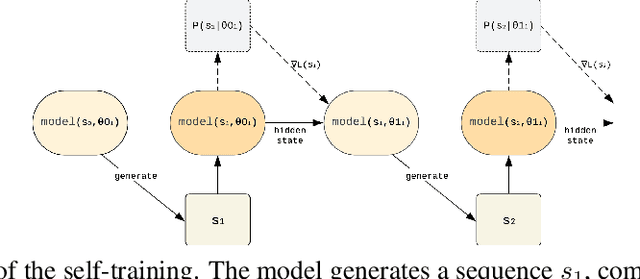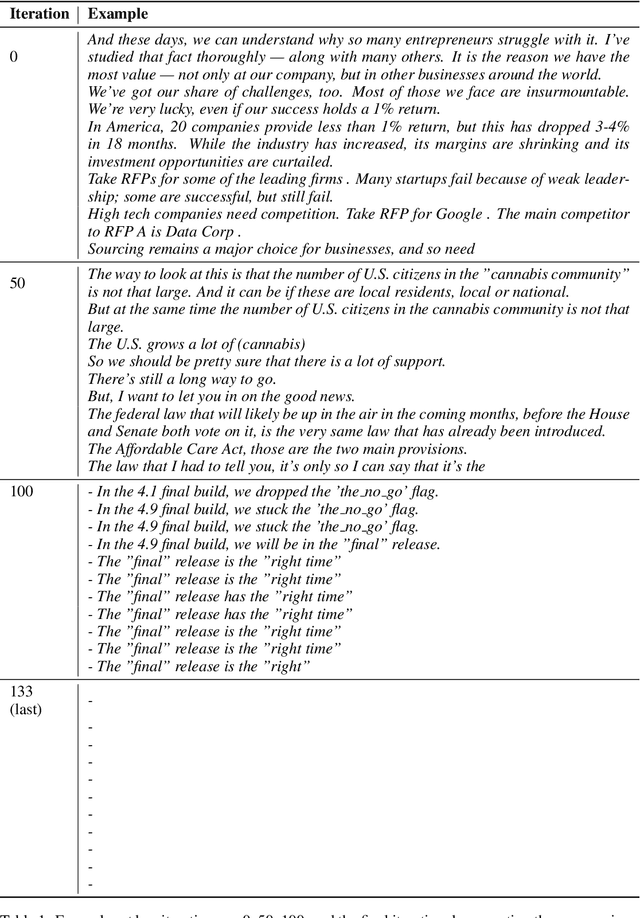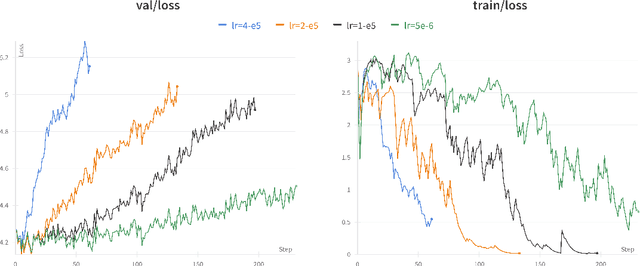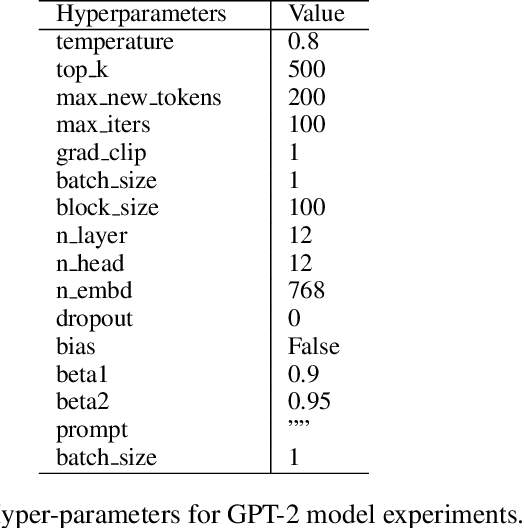Collapse of Self-trained Language Models
Paper and Code
Apr 02, 2024



In various fields of knowledge creation, including science, new ideas often build on pre-existing information. In this work, we explore this concept within the context of language models. Specifically, we explore the potential of self-training models on their own outputs, akin to how humans learn and build on their previous thoughts and actions. While this approach is intuitively appealing, our research reveals its practical limitations. We find that extended self-training of the GPT-2 model leads to a significant degradation in performance, resulting in repetitive and collapsed token output.
* ICLR 2024
 Add to Chrome
Add to Chrome Add to Firefox
Add to Firefox Add to Edge
Add to Edge